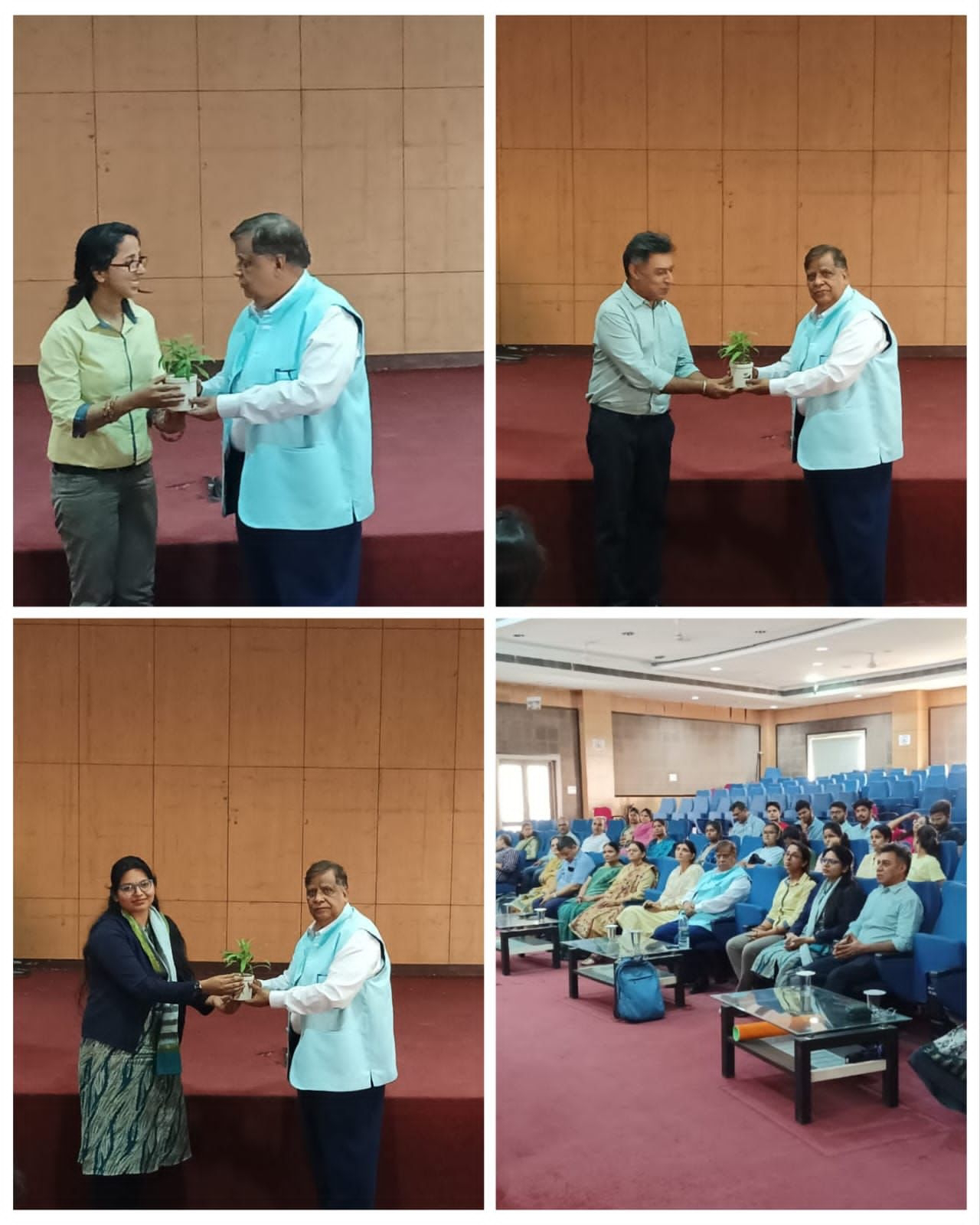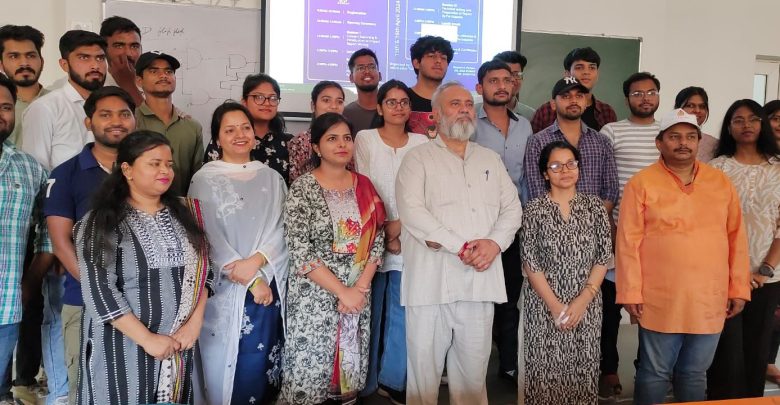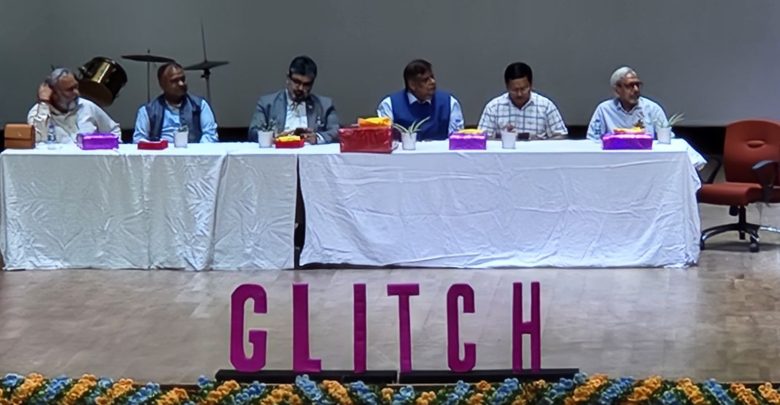गौतम बुद्ध विश्वविद्यालय ने प्रौद्योगिकी और नवाचार के अपने वार्षिक उत्सव, “ग्लिच टेक फेस्ट 2024 ” का आज 12 April को उद्घाटन किया, जो 12 से 14 अप्रैल, 2024 तक आयोजित किया जा रहा है। यह कार्यक्रम छात्रों में नवाचार, प्रतिस्पर्धा और प्रेरणा के संचार का दावा करती है। इस उत्सव में मुख्यतः भिन्न प्रकार की टेक-जगत से जुड़ी हुईं प्रतियोगिताएं आयोजित कराई जा रहीं हैं, जिनमें तक़रीबन पाँच सौ से ज़्यादा प्रतिभागियों के भाग लेने की आशंका है। ग्लिच टेक फ़ेस्ट 2024 की मुख्य प्रतियोगिता 24 घंटे तक लगातार चलने वाली हैकथॉन होगी, जिसमे 200 ज़्यादा प्रतिभागी भाग ले रहे हैं। आज के उद्घाटन समारोह में विश्विद्यालय के स्कूल ऑफ. आई. सी. टी के डीन प्रो. संजय कुमार शर्मा व विभागाध्यक्ष (डॉ अनुराग सिंह बघेल, डॉ विदूषी शर्मा एवं डॉ नीता सिंह), सभी विभागों के अध्यापक एवं छात्र उपस्थित रहे। उत्सव के उद्धघाटन समारोह में गौतम बुद्ध विश्वविद्यालय के माननीय कुलपति प्रोफ़ेसर रविंद्र कुमार सिन्हा एवं समारोह के मुख्य अतिथि डॉ नीरज शर्मा, पलाउ गणतंत्र के कॉन्सुलेट जेनेरल, ने द्वीप प्रज्वलन से किया। स्कूल ऑफ़ आई. सी. टी. के डॉ विमलेश कुमार रे ने सभी का स्वागत किया। अपने भाषण में विश्वविद्यालय के माननीय डॉ विश्वास त्रिपाठी ने सभी अतिथिगणो का अभिनंदन किया। आयोजन में माननीय मुख्य अतिथि ने साइबर सिक्योरिटी की आवश्यकता के विषय में बात की। उनके बाद माननीय कुलपति महोदय ने आर्टिफीसियल इंटेलिजेंस व मशीन लर्निंग के बारे में छात्रों को अवगत कराया। श्रीमती पंकज श्रीनिवासन ने भी श्रोताओं को अपने उत्साहवर्दक शब्दों से प्रेरित किया। आयोजन में सम्मलित जी. सी. सी. आई. के अध्यक्ष आशीष गुप्ता, जितेंद्र खरदे (रि. वैज्ञानिक, इसरो), श्री जी. पी. सिंह (रि. वरिष्ठ वैज्ञानिक एवं कार्यक्रम प्रबंधन, इसरो) और डा. विश्वास त्रिपाठी (रजिस्ट्रार, गौतम बुद्ध विश्विद्यालय) को सम्मानित किया गया।
आज के दिन टेक फेस्ट में कोडिंग चैलेंज, फेस पेंटिंग, मोनोलॉग जैसे कई प्रतियोगिताएं कराइ गईं जिसमें छात्रों ने बढ़-चढ़ कर भाग लिया। उत्सव के आकर्षक आयोजनों के विस्तृत सूची में ट्रेजर हंट, कोडिंग चैलेंज, पैनल डिस्कशन, फेस पेंटिंग, फैशन शो, लघु फिल्म स्क्रीनिंग, आदि, जैसे कार्यक्रम भी शामिल हैं, जो प्रतिभागियों को लगातार विकसित हो रही जीवन शैली में कौशल और ज्ञान से लैस करते हैं। प्रौद्योगिकी क्षेत्र की प्रमुख हस्तियों के साथ बातचीत महत्वपूर्ण दृष्टिकोण और अंतर्दृष्टि प्रस्तुत भी आयोजित कराई गई है। इसके अलावा, उद्यमशीलता और स्टार्टअप कार्यक्रम जैसे आयोजन को प्रक्रिया में लाया जा रहा हैं जिससेे छात्रों में छुपे इंटरप्रेन्योर को उभारा जाए
आधिकारिक वेबसाइट, जो [https://glitch.mygbu.in/] पर स्थित है, वहाँ इच्छुक पंजीकरण, संपूर्ण कार्यक्रम के संबंध में अतिरिक्त जानकारी उपलब्ध करा दी गई है। गौतम बुद्ध विश्वविद्यालय GLITCH 2024 में तकनीकी नायकों की अगली लहर को देखने के लिए उत्सुक है!





1504024.jpeg)

.jpg)